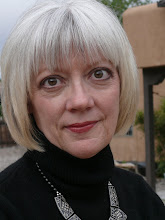Ward V, West R, Smith S, McDermott S, Keen J, Pawson R, et al.
The role of informal networks in creating knowledge among health-care managers: a prospective case study. Health Serv Deliv Res 2014;2(12).
Information and free full text
Summary
A quick thought after a first glance at the publication:
This report highlights the importance of the water cooler “method” of sharing knowledge. In the work reflected in my recent book there has been concern voiced by front line care providers that there is little time to just talk to one another and that this could be detrimental to the safety and quality of care provided. I suspect that a lack of time on the administrative or “blunt” end for informal conversation (ideally face-to-face) could be detrimental as well.
Will the findings inform a different EI&K service delivery model? And also how librarians—who may serve as middle management—see their roles differently as both boundary spanners and information, evidence and knowledge service providers?
I look forward to diving into the report more deeply to identify other items of interest. In the meantime, sharing your thoughts here would be welcome.

2 comments:
I heard about your newly published book (congratulations) and in searching for more info stumbled across the blog this morning. Your post really struck home for me.
This research study is so interesting, and two points in particular ring true: the primacy of trust, and the importance, but fragility, of informal networks. I was also interested to read about the mix of seniorities within the observed knowledge sharing "clusters". Middle managers serve an important bridge between day-to-day operations and higher-level strategy and decision-making. In much a same way librarians serve as a bridge, across unit silos, between levels of hierarchy in our organizations. Personally, I know that I move fluidly, as a trusted partner, between so many different "clusters" within my organization.
In my daily work, connecting people to information in the traditional sense (articles, etc.) is often my "in". It's a concrete service that my clients can immediately grasp the value of. But as they start coming back, the questions sometimes change..."Does the company collect info on X?", "Is anyone working on Y"...My role takes the good old reference interview concept and puts it on steroids. Understanding what the client really needs, but then also understanding information in the broadest sense that can meet that need. It's not only about searching for the artifact I can give someone to answer their question (an article, a book, an agency report), it can be about facilitating connections, offering reassurance regarding information gaps, encouraging the generation of knowledge to fill those gaps.
I recently attended a professional conference where the guest speaker encouraged librarians to get engaged as leaders in their health care organizations. But implicit in that invitation is that we take possession of a broader conceptualization of "information" as information professionals. It's not about the "resources" or the "services", it's facilitating that connection...knowledge sharing, not knowledge management...that's really key. The authors of this study note that formal structure does not replace informal networks. Just as formal artifacts (both physical and digital) and services around those artifacts are only one component of information that knowledge workers need.
Embracing the invitation to engage at a higher level may also mean letting go of some comfortable realities. With our expert search skills librarians often leverage (or rely on?) an understanding evidence-based medicine to promote ourselves. It's a natural connection, but sometimes works to our detriment. Professionally, librarains are really rolling with the "evidence" train now...as systematic reviewers, library science researchers, etc. At the same time, the communities we work with are coming to terms with a more nuanced and inclusive concept of evidence-based practice. After all, a systematic review or RCT is not always the "evidence" (over observational studies, quality data, even expert opinion, etc.) that's needed to meet an information need. The UK study touches on this broad understanding of knowledge, as well.
Maybe this is old news to some librarians. Having worked in many different settings and roles, I acutely feel a barrier, silos within our profession. Are there librarians talking about this somewhere? Expanding the definition of "information" also may involve bridging the boundaries we've set within our own professional community--silos by setting, disciplinary focus, resource/service dichotomy...even degree.
Thanks for the thought-provoking post.
Kristin -- thanks so much for your thoughtful comment. I apologize for taking a while to get back to you.
We are pretty aligned in our thinking! You are so wise to see your information skills as a solid stepping stone to a broader opportunity in your healthcare role. They are vitally important -- but can limit both our profession's thinking and the approach our non-librarian colleagues take in seeing librarians as partners and leaders.
You ask if librarians are discussing the problem of silos within our own ranks -- I suspect it is happening, but more informally. Whether or not the "profession" has acknowledged this as a limitation to our ability to affect change in organizational information and knowledge sharing behaviors I am not aware of it.
Thank you again for responding. Pls connect with me on LinkedIn. We need to stay in touch!
Post a Comment